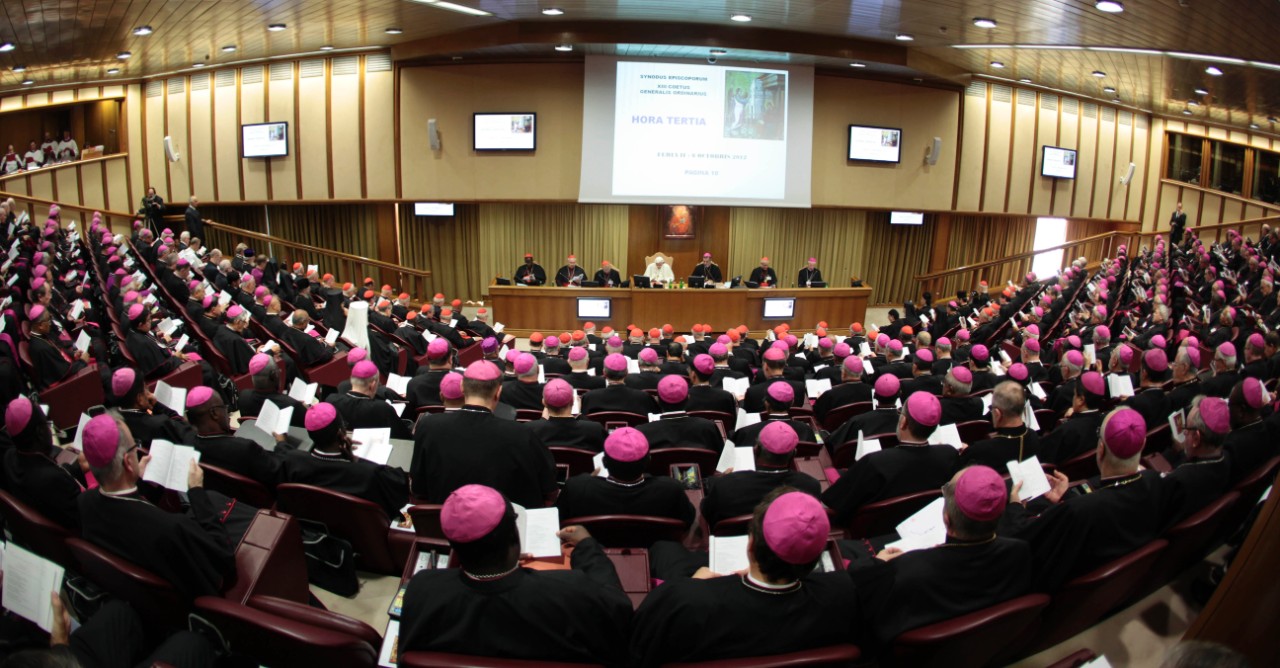The Synod (formerly Synod of Bishops)

The Synod of Bishops was established by St Paul VI on 15th September 1965 with the Motu Proprio Apostolica Sollicitudo. Its formation took place in the context of the Second Vatican Council which, with the Dogmatic Constitution Lumen Gentium (21st November 1964), had largely concentrated on the doctrine of the episcopate, urging greater involvement of the Bishops cum et sub Petro in matters that concern the universal Church.
The Council Decree Christus Dominus (28th October, 1965) describes the newly established body as follows: «Bishops chosen from various parts of the world, in ways and manners established or to be established by the Roman pontiff, render more effective assistance to the supreme pastor of the Church in a deliberative body which will be called by the proper name of Synod of Bishops. Since it shall be acting in the name of the entire Catholic episcopate, it will at the same time show that all the bishops in hierarchical communion partake of the solicitude for the universal Church» (n. 5).
Over the years the synodal norms have undergone successive improvements, as witnessed by the various editions of the Ordo Synodi Episcoporum published in 1966, 1969, 1971 and 2006. In the meantime, the Code of Canon Law (25th January 1983), canons 342-348, and the Code of Canons of the Eastern Churches (18th October 1990), canon 46, have integrated the Synod into the universal law of the Church, specifying its nature and functioning.
Recently Pope Francis, with the Apostolic Constitution Episcopalis communio (September 15th 2018), has profoundly renewed the Synod of Bishops, inserting it within the framework of synodality as a constitutive dimension of the Church, at all levels of her existence.
In particular, the Synod is understood as a process composed of three parts: the preparatory phase, in which the consultation of the People of God on the themes indicated by the Roman Pontiff takes place; the celebratory phase, characterized by the meeting of the assembly of Bishops; and the implementation phase, in which the conclusions of the Synod, once approved by the Roman Pontiff, are accepted by the local churches.
The central phase, in which the work of discernment of the Pastors is carried out, is thus preceded and followed by phases that call into play the totality of the People of God, in the plurality of its components.
The Synod - which avails itself of a General Secretariat composed of a General Secretary, an Under-Secretary and a number of special Councils of Bishops - meets in different types of Assembly: in an Ordinary General Assembly, for matters concerning the good of the universal Church; in an Extraordinary General Assembly, for matters of urgent consideration; in a Special Assembly, for matters which mostly concern one or more specific geographical regions. Furthermore, it is also the responsibility of The Roman Pontiff to convene a Synodal Assembly in accordance with other modalities which are established by him.
With the promulgation on 05 June 2022 of the Apostolic Constitution Praedicate Evangelium, the General Secretariat of the Synod of Bishops becomes the General Secretariat of the Synod.
Location of the Synod Hall within the Paul VI Hall - Vatican City









